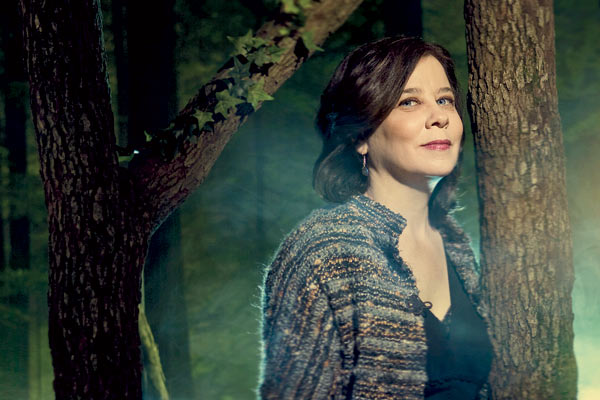
Related:
THE 2010 HONOREES »
Jerry Adelmann »
Sarah Elizabeth Ippel »
« Terra Brockman
Angela Hurlock »
Dan McGowan »
When some people think about farming, they imagine homesteaders on a family plot wielding American Gothic pitchforks and forging their way against hostile nature. Terra Brockman, who works on her brother Henry’s sustainable farm not far from Bloomington, Illinois, sees some of that austere romance in farm life, but she also brings the picture down to earth, so to speak. “There’s beauty and there’s reward, but there is a lot of sleeplessness and exhaustion and kneeling in the dirt,” she says.
Brockman, 51, is the founder of The Land Connection, an Evanston-based nonprofit that preserves farmland, trains farmers, and supports local food. She established the organization in 2001, after a for-sale sign near the Brockmans’ downstate property signaled the possible end of a family farm. Through The Land Connection, Brockman successfully raised the money to buy the neighbor’s farm and install an eco-friendly farmer on the property. Since then, her organization has helped preserve more than 1,000 acres. Preserving farmland remains one of the main missions of the nonprofit, which is funded by a combination of grants, fundraisers, and individual donations. Farmer training is another mission. Since 2005, The Land Connection has run Central Illinois Farm Beginnings, a one-year program that teaches methods of sustainable farming. Nearly 80 percent of the program’s 70 graduates are currently farming.
Brockman herself informally connects farmers with chefs who want local food. For example, Brockman’s network connected Paul Kahan (from Blackbird) and Dean Zanella (then of 312 Chicago) with Organic Pastures and Wettstein Organic Farm, two sustainable farms near Henry Brockman’s homestead that produce suckling pigs.
As The Land Connection has expanded, Brockman has been able to specialize her role. Her book chronicling one year of farm life, The Seasons on Henry’s Farm, came out in 2009. Although other commitments take her away frequently, she still tries to pitch in at Henry’s farm on Tuesdays and Fridays for harvesting.
Local food has gained momentum—in a way organic never has—in the past few years, Brockman says. “People got tired of the nameless, faceless grocery store where the only conversation was ‘Paper or plastic?’” she says. What’s more, local food tastes better because it doesn’t spend as much time in delivery. Finally, Brockman says, local food builds community.
All of that feels miles away from vast environmental problems like greenhouse gases or the toxification of the Gulf of Mexico, the large-scale issues that cause people to throw up their hands and say, “What can I do?”
“What can you do? You can have a really great dinner tonight,” Brockman says.
Photograph by Ryan Robinson; Assistant: Mark Doddato Styling: Courtney Rust Hair and Makeup: Ashley Condron and Carley Martin/Artists by Timothy Priano


